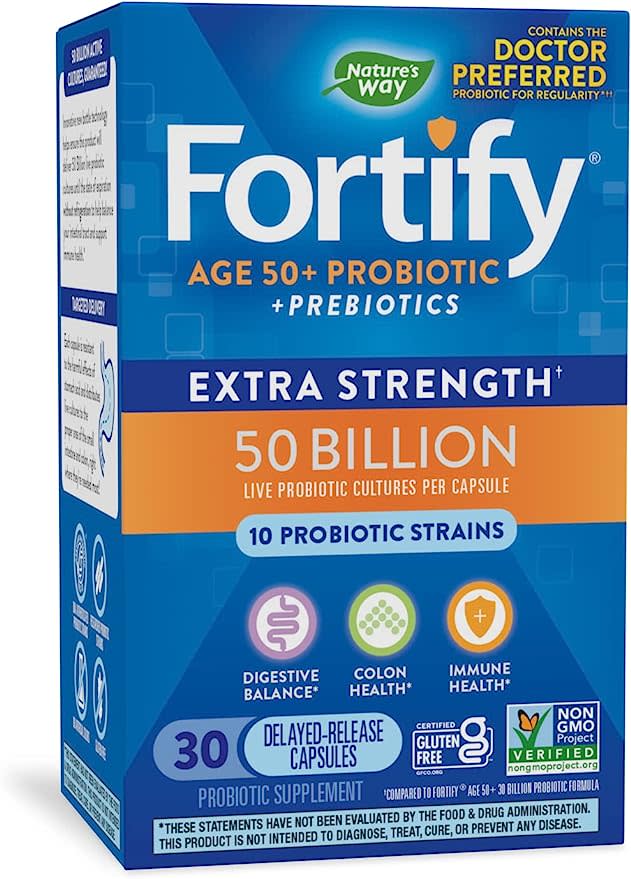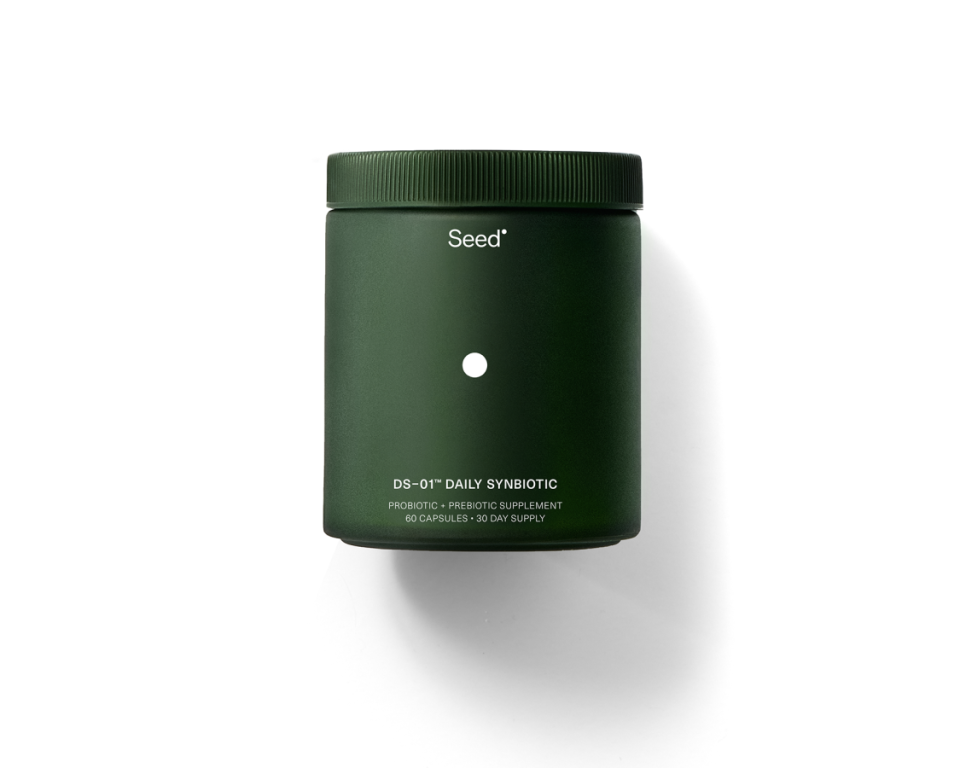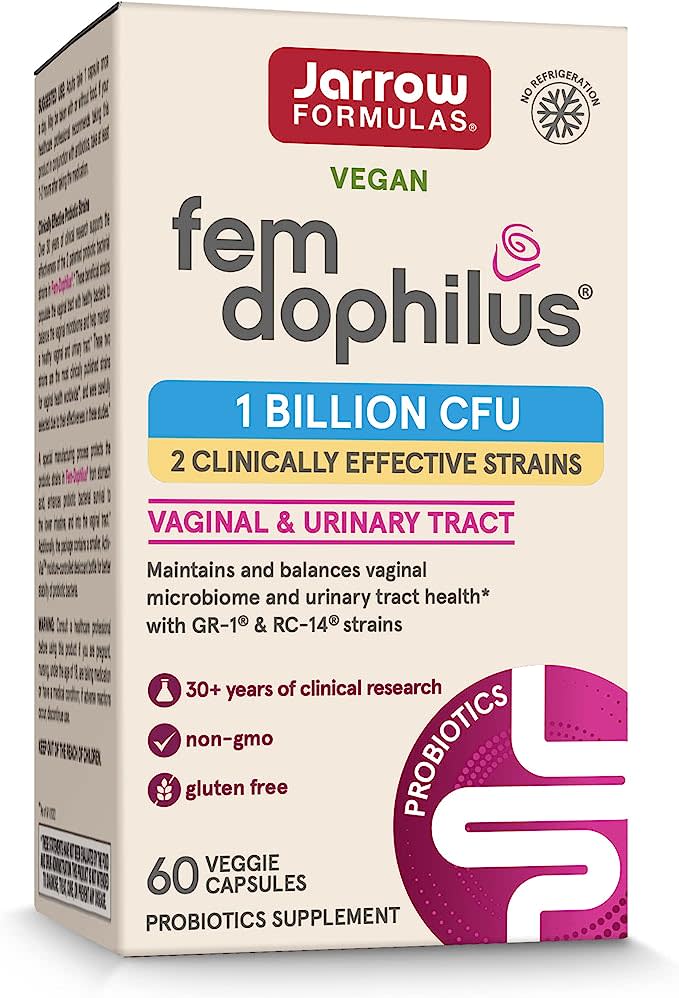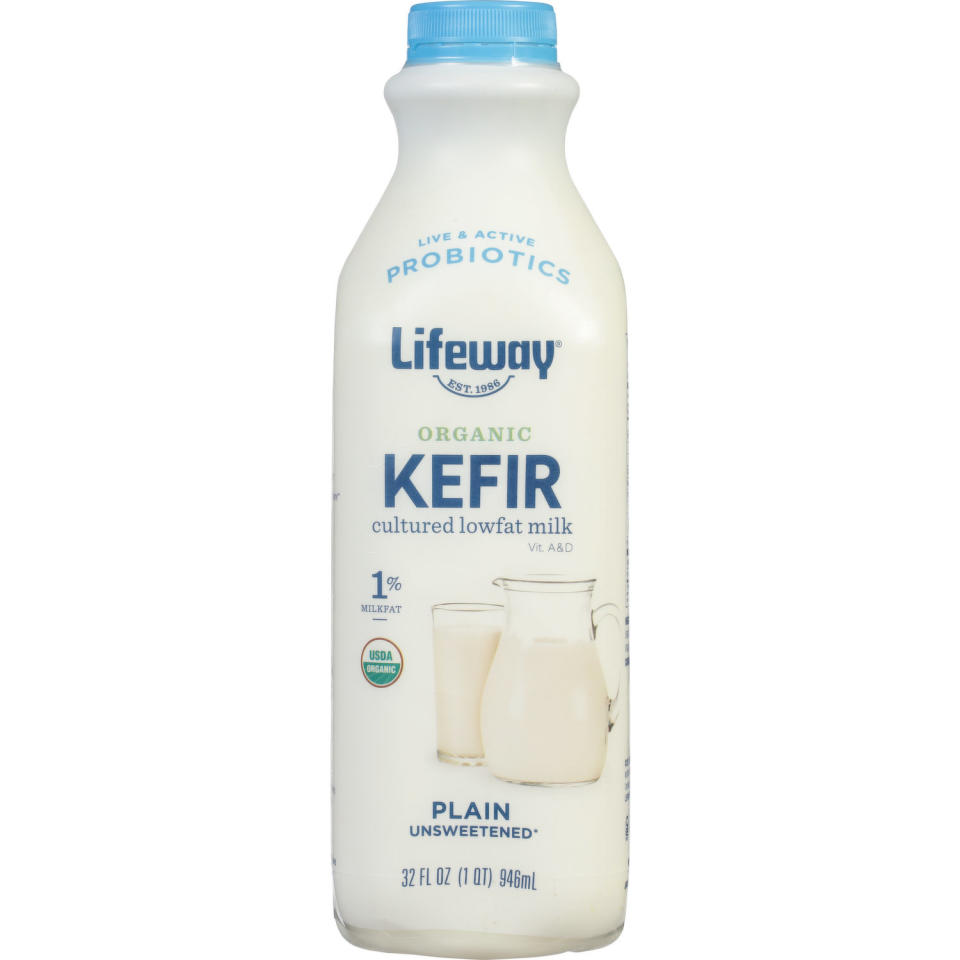Probiotics for Women Can Help Manage Menopausal Symptoms — Here's Everything You Need to Know

If you hear the word germs, chances are the first ones popping to mind are those that make you sick. But not all germs are bad. There are trillions of so-called germs that live symbiotically with humans inside your gut.
“What we’ve learned over the years is that there’s a lot of crosstalk between your gut microbiome and your body,” Gail Cresci, a digestive disease researcher and registered dietitian for the Cleveland Clinic told HealthEssentials. “There are certain gut microbes that can produce small molecules and that can also help synthesize certain vitamins, enzymes and hormones that are needed in our body.”
More from SheKnows
In exchange for food and shelter, groups of “good” bacteria work to digest and secure nutrients from food along with maintaining the health of other functions in the body such as regulating emotions, boosting brain health, and keeping your immune system in tip-top shape.
Your gut is the foundation of human health. Women, in particular, benefit from maintaining a balanced gut microbiome. The composition of a female’s gut microbiome looks different from males with several bacterial species important in managing menopausal and postmenopausal symptoms.
Click here to read the full article.
One way to keep bacteria happy and healthy is taking probiotics for women. Probiotics are foods containing living microorganisms that resemble those living in the human body. Below we’ve listed how probiotics help the gut, how it protects women in critical stages of life, and top picks from our esteemed Flow Advisory Council members.
What are probiotics, and why do you need them?
Your gut bacteria is home to all kinds of bacteria, fungi, and viruses. While some work mutually with humans, others are not so keen on helping out. These “bad bacteria” leech off your body while spreading toxins or causing disease. It’s not possible to get rid of every single “unfriendly” microbe — there’s an estimated 100 trillion microbes and 1,000 bacterial species living in the gut.
Instead, focus on maintaining a balance between the good and bad microbes. Your gut is considered healthy when the number of good bacteria outweigh the bad ones. The key to doing this is keeping a diverse number of microbes in your system. Research shows a gut microbiome rich with biodiversity is associated with healthiness and living longer while less diverse guts are correlated to chronic conditions such as Alzheimer’s and type 2 diabetes.
Probiotics work by diversifying microbiomes. These health-promoting microbes contain bacterial species with loads of health benefits. For example, probiotics commonly contain Lactobacillus which help prevent bacterial infections and intestinal damage. Another is Bifidobacterium with decades of research linking the species to a decreased risk of colorectal cancer, treating diarrhea, and getting rid of disease-causing bugs.
There is research that an imbalanced gut seems to contribute to neurodegenerative diseases such as Alzheimer’s and Parkinson’s. However, “the supplements we currently have available do not correct the underlying dysbiosis presence in neurodegenerative diseases,” says Kellyann Niotis, MD, a preventative neurologist and Flow Advisory Council member. “We need more research in this area — there’s promise but we aren’t there yet.”
Another thing to keep in mind is that probiotics are not the same as prebiotics — another popular option for boosting your gut health. Instead of introducing new ones, prebiotics are food used to nourish the already existing gut microbes.
An unhealthy gut worsens women’s health
As you get older, there is a natural shift toward bad bacteria and less gut diversity. This contributes to a weakening immune system and an elevated risk of diseases. For example, changes in your gut bacteria increases the risk for heart disease — the number one killer of American women — and can actually ramp up the aging process itself.
Another factor that creates an unhealthy gut over time is menopause. Menopause causes estrogen levels to fluctuate which shifts the balance of the microbiome. This change kills off several good bacterial species, including those in charge of estrogen metabolism. Loss of these bacteria further contributes to low estrogen levels during menopause and post-menopause.
“If you don’t have the type of bacteria and fungi that make up the estrobolome [the group of gut bacteria responsible for regulating estrogen], you will not break estrogen down,” Mindy Pelz, a hormone health expert and author of The Menopause Reset told Well + Good. “If estrogen isn’t metabolized, it gets stored in the body, and that’s when estrogen can become toxic. If your cells don’t use it, it’s stored in tissue, and that can lead to cancer.” The low estrogen levels and increased inflammation from an unbalanced microbiome further increase the risk for endometrial cancer and osteoporosis in women going through menopause.
An imbalanced gut is also a contributor to most of the symptoms observed during menopause. Hot flashes, for example, may be associated with inflammation caused from a gut that is unable to keep out dangerous and disease-causing germs. The gut is also indirectly involved with weight gain. As estrogen levels plummet, the body becomes less efficient in distributing fat causing a disproportionate amount to go to your midsection.
Women can benefit from taking probiotics
Probiotics may help with managing menopausal effects. Research suggests a healthy microbiome increases calcium absorption and prevents osteoporosis — 20 percent of bone loss happens during menopause — and decreases the risk of breast cancer. Additionally, postmenopausal women are more vulnerable to weight gain and heart problems. Taking probiotic supplements appeared to help with managing body fat and blood pressure.
Probiotics can also assist with getting a good night’s rest — a common complaint among women in menopause. A small 2017 study identified a link between taking probiotics and reducing night sweats and hot flashes. Sleep quality would further improve as some probiotics increase the number of bacteria involved in regulating anxiety and depression.
Things to consider when choosing a probiotic
Probiotics are found in food or supplements
You can find probiotics either in foods such as Greek yogurt and some fermented products like kimchi and kombucha, though not all fermented foods provide probiotics. Sourdough bread and commercial pickles, for example, are processed after fermentation and do not have live probiotic species. Some unfermented foods such as milks and smoothies add microorganisms later on in the product-making process, though the National Institute of Health (NIH) says it’s not clear whether these count as probiotics.
A second option for acquiring probiotics is through dietary supplements. These over-the-counter drugs are purchasable at local pharmacies and available as a pill, liquid, or other forms. Since there are many different probiotic species and dietary supplements tend to mix bacterial strains together, there is no recommended dosage to take per day. Normally, most probiotic supplements will have you take one per day to support digestion and gut health.
Probiotic supplements have a unique measuring system
Probiotic supplements are measured as colony forming units (CFU). This unit expresses the number of viable cells in the supplement. The average probiotic supplement is 1 to 10 billion CFU per dose though the NIH warns that a higher CFU count does not mean the product is healthier for you. One reason is that drug manufacturers only need to list the total weight of microorganisms in the probiotic. This mass includes both live and dead microbes, and these organisms need to be alive to exert their health benefits. There is no correlation between healthiness and the number of microorganisms present in the supplement.
The FDA does not regulate probiotic supplements
Consider whether the probiotic supplement would work in the first place. The FDA does not review the safety and effectiveness of dietary supplements though some probiotic products may be regulated if they are considered a drug or food ingredient. This means that probiotic companies can make claims on their label about how the product affects your body with no health data to back it up.
The research on probiotics is still ongoing. There are still some questions such as how much to take, if it affects other chronic conditions, or whether certain groups of people benefit the most from probiotic supplementation. But with gut health in the spotlight, it’s only a matter of time until we get some answers.
What are the best probiotics for women?
We asked health experts from our Flow Advisory Council to give their recommendations on the probiotics for women they use themselves.

Former What Not to Wear co-host Stacy London, who created the State of Menopause beauty brand, recommends and uses Nature’s Way Fortify 50+ Extra Strength. This daily probiotic comes with 10 live strains that are intended to support digestive, immune, and colon health.
Nature’s Way Fortify Age 50+ Probiotic

A trusted Flow advisor recommends Seed’s DS-01 Daily Synbiotic. The 2-in-1 probiotic and prebiotic combo is formulated with 24 strains to optimize gut health and other systems.
Seed DS-01 Daily Synbiotic

One of our trusted Flow advisors recommended Fem Dophilus. The product contains two strains — GR-1 and PC-14 — that work to balance the vaginal microbiome. According to the manufacturer, one capsule a day will help with promoting vaginal and urinary tract health.
Jarrow Formulas Fem Dophilus

Piraye Beim, the founder and CEO of Celmatix, prefers getting her probiotics from natural sources like organic sauerkraut and kefir. Her top choice is Lifeway Organic Kefir.
Lifeway Organic Kefir
Best of SheKnows
Sign up for SheKnows' Newsletter.
For the latest news, follow us on Facebook, Twitter, and Instagram.



